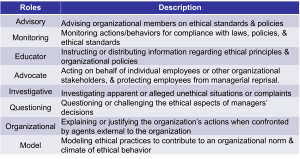2-5: Ethics
 Research involving human participants requires careful attention to ethical principles that protect participant welfare while enabling scientific advancement. The American Psychological Association’s Ethical Principles of Psychologists and Code of Conduct (American Psychological Association, 2010) provides the foundation with five core principles that align with broader biomedical ethics frameworks (Beauchamp & Childress, 2019):
Research involving human participants requires careful attention to ethical principles that protect participant welfare while enabling scientific advancement. The American Psychological Association’s Ethical Principles of Psychologists and Code of Conduct (American Psychological Association, 2010) provides the foundation with five core principles that align with broader biomedical ethics frameworks (Beauchamp & Childress, 2019):
- Helping others while doing no harm
- Establishing relationships based on trust
- Maintaining high integrity in teaching, research, and the practice of psychology
- Being fair and just in all professional relationships and actions
- Respecting the rights and dignity of all people
This Ethics Code provides a common set of principles and standards upon which psychologists build their professional and scientific work.
Additional Stipulations of the APA Ethics Code
Additional Stipulations of the APA Ethics Code include:
Institutional Review Board Approval
Approval by the supporting institution (e.g., university) through an Institutional Review Board (IRB) that evaluates research proposals for ethical compliance and protects participant rights and welfare.
Informed Consent
Informed consent requires participants to signify (usually in writing) their willingness and desire to participate in a particular research study after being provided with important and relevant information about the risks, procedures, and benefits of such participation.
Confidentiality
Confidentiality of participant data protects information from unauthorized access or disclosure, which is particularly important in workplace research where sensitive information about job performance, salary, or organizational problems might be involved.
Deception
Avoidance of use of deception whenever possible, though sometimes deception is necessary when full disclosure would compromise the study’s validity. When deception is used, researchers must minimize its extent and provide complete debriefing afterward.
Animal Care
Ethical care/use of animals in research settings, though this is less relevant for most I/O psychology research (just be pateint, we will find a few cool animal studies, like the executive rat study or the competitive chickens, LOL).
In organizational settings, informed consent can be complicated by power dynamics. If your boss asks you to participate in research, do you really feel free to decline? Researchers must be especially careful to protect employee rights and ensure genuine voluntary participation (Sales & Folkman, 2000).

Media Attributions
- Ethics © Tumisu is licensed under a Public Domain license
- Ethical Issues in I/O Psychology
